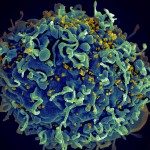Collaborative statement
The Lambrechts Lab is a community dedicated to conducting rigorous, impactful, collaborative, and open science in a welcoming, respectful, and supportive environment. We aim to help each lab member achieve their goals within and beyond science. We believe a diverse community is a stronger community and welcome everyone, regardless of race, gender, sexual orientation, cultural or economic background, or ability status. We are committed to fostering not only diversity but also inclusion, providing support as members navigate their roles in the lab, Institut Pasteur, and the wider scientific community.
We believe collaborative science is the most effective, and we acknowledge all research contributions, regardless of career stage or role. We strive to work together rather than compete.
We are dedicated to sharing our science with colleagues, peers, and the public through preprints, data and protocol sharing, and public engagement. These efforts help break down barriers, combat misinformation, and improve diversity in the next generation of scientists, particularly those from traditionally underrepresented groups in academia.
Mentoring statement
My mentoring philosophy is centered on fostering an environment of collaboration, personal growth, and scientific excellence. As a principal investigator, my primary role is to secure funding and lead research that provides tangible contributions to science and society. I expect my trainees to be active participants in these endeavors, engaging in rigorous research that leads to publications and public outreach. It’s crucial for trainees to adhere to ethical standards and develop a professional demeanor.
Trainees are expected to take ownership of their education and research, maintaining professionalism, self-motivation, and curiosity. Regular updates on progress and challenges are essential, alongside awareness of program requirements and institutional policies. Building a professional network and engaging with the public are vital components of development. Active participation in group meetings, respecting lab protocols, effective collaboration, and maintaining a clean lab environment are key team responsibilities. Trainees should pursue strong research skills by engaging with literature, presenting work, authoring papers, and maintaining organized records. Meeting deadlines and clear communication are imperative, with flexibility in expectations for personal development.
In return, I am committed to the lab’s success, offering guidance and support tailored to individual needs. I promote work-life balance and support professional development, including mentorship opportunities. My door is open for regular meetings and discussions, aiding navigation through academic programs and professional development. Open communication on data ownership and authorship policies is fundamental to prevent conflicts. I advocate for each trainee, supporting them during their time in the lab and beyond. Encouragement to attend conferences and workshops, fostering complementary skills, and understanding diverse backgrounds are integral to my role.
Louis Lambrechts, April 2025


